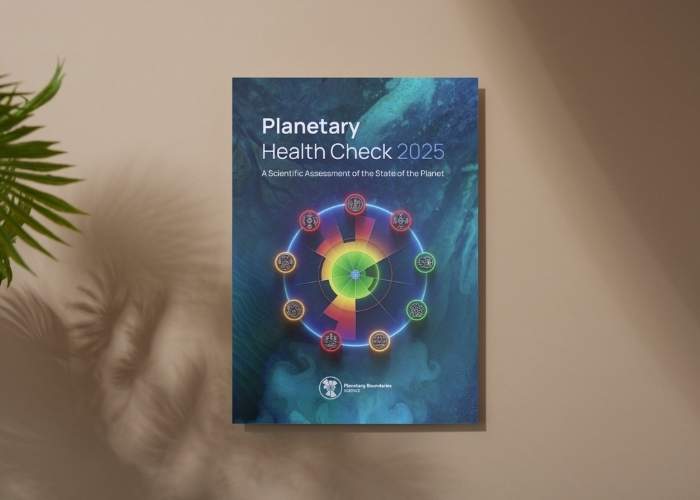The newly published Planetary Health Check 2025 brings into focus the state of our planet’s life-support systems – including the oceans. Among its key findings, the report highlights that ocean acidification is now a present-day global challenge, and it features SCOPE data as a crucial source of evidence.
SCOPE’s Contribution
On of the Planetary Health Check 2025 report, the UExP-FNN-U v2025-1 dataset, developed by SCOPE in collaboration with the Ocean Carbon for Climate (OC4C) project, is used to assess the ocean acidification planetary boundary.
This dataset integrates observations from ships, autonomous platforms, and satellites to produce a high-resolution, global view of the surface ocean carbonate system. By providing reliable, open-access data, SCOPE and OC4C enable global assessments like Planetary Health Check to monitor ocean chemistry with confidence.
What the Data Shows
A key metric of ocean health is the aragonite saturation state (Ω) at the sea surface. The report shows that Ω has dropped to 2.84, just below the revised planetary boundary of 2.86. This indicates that ocean acidification has already crossed a critical threshold, highlighting the urgent need for mitigation and adaptation strategies.
Read the full report: Planetary Health Check 2025 PDF
Looking Ahead
SCOPE has generated various datasets of the pools and fluxes of carbon in the ocean, including uncertainty estimates, that are now being analysed in scientific and impact case studies as the project progresses. With its datasets now featured in global assessments, SCOPE is helping ensure that policymakers, scientists, and the public have the information they need to safeguard the ocean – and the communities that depend on it.

